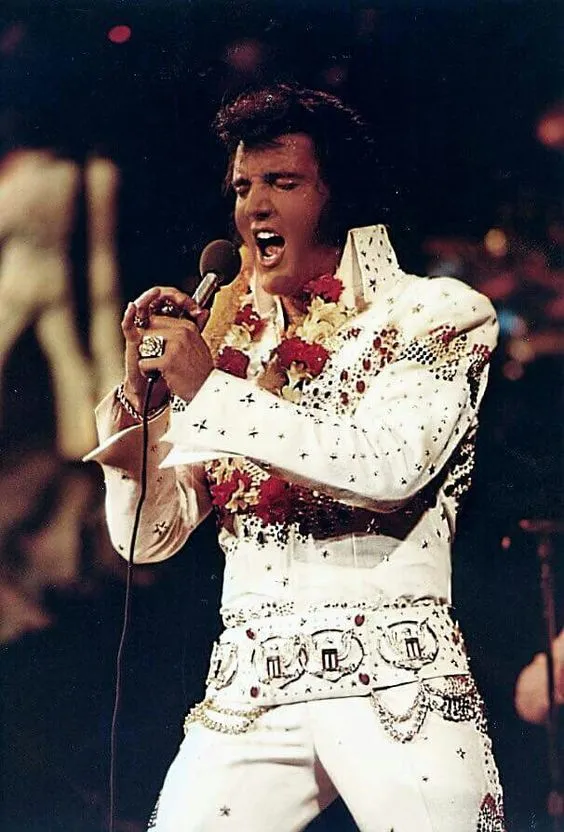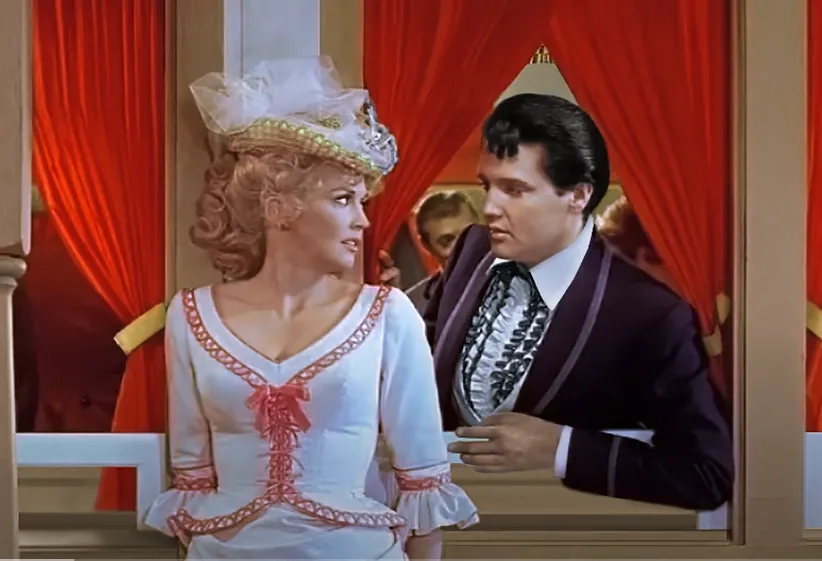About the song
(Watch the video below)
"I Beg of You," a timeless ballad recorded by Elvis Presley in 1957, stands as a testament to the enduring power of love and longing. Written by Rose Marie McCoy and Cliff Owens, the song captures the essence of romantic yearning and the desperate plea for reconciliation.

Released as a single alongside "Don't," "I Beg of You" showcases Elvis's versatility as a vocalist and his ability to convey emotion with authenticity and depth. With its lush orchestration and heartfelt lyrics, the song resonated with audiences and became a staple of Elvis's repertoire.

At its core, "I Beg of You" is a love song imbued with a sense of urgency and vulnerability. The narrator pleads with their lover to reconsider their decision to part ways, expressing a profound sense of loss and desperation. Lines like "I beg of you, don't leave me" and "Don't leave me here to cry" encapsulate the raw emotion and heartache of unrequited love.

Elvis's rendition of the song elevates it to new heights, infusing it with his signature blend of soulfulness and sincerity. His velvety voice soars over the sweeping orchestral arrangement, conveying a depth of feeling that is both captivating and haunting. With each impassioned plea, Elvis draws listeners into the emotional landscape of the song, inviting them to share in his longing and despair.

"I Beg of You" also serves as a showcase for Elvis's vocal prowess, highlighting his remarkable range and control. From the tender vulnerability of the verses to the soaring crescendos of the chorus, Elvis delivers a performance that is nothing short of mesmerizing. His ability to convey emotion through his voice alone is a testament to his status as one of the greatest singers of all time.

Beyond its musical merits, "I Beg of You" is also a reflection of the broader cultural landscape of the 1950s. The song emerged during a period of social and cultural upheaval, as post-war America grappled with shifting norms and values. Against this backdrop, themes of love and longing resonated deeply with audiences, offering a sense of solace and connection in a rapidly changing world.

Moreover, "I Beg of You" speaks to the universal experience of heartache and longing, transcending the confines of time and place. Regardless of age, gender, or background, listeners are drawn to the song's emotional core, finding echoes of their own experiences within its lyrics. In this sense, "I Beg of You" remains as relevant and poignant today as it was upon its original release.

In addition to its emotional resonance, "I Beg of You" also serves as a showcase for Elvis's evolution as an artist. By 1957, he had already achieved considerable success with hits like "Heartbreak Hotel" and "Love Me Tender," but "I Beg of You" allowed him to explore new musical territory. With its lush orchestration and sophisticated arrangement, the song marked a departure from Elvis's earlier rockabilly sound, showcasing his versatility as a performer.

Furthermore, "I Beg of You" reflects Elvis's ongoing quest for artistic growth and experimentation. Throughout his career, he constantly pushed the boundaries of his music, incorporating elements of gospel, blues, country, and R&B into his repertoire. With each new song, Elvis sought to challenge himself and his audience, exploring new themes and styles while staying true to his roots.

"I Beg of You" also holds a special place in the hearts of Elvis fans around the world. For many, it serves as a reminder of the timeless appeal of his music and the enduring legacy of his artistry. Whether experienced in the context of a live performance or listened to on a record player at home, the song continues to evoke a sense of nostalgia and emotion, transporting listeners back to a simpler time.

In conclusion, "I Beg of You" stands as a testament to the enduring power of love and longing, as well as Elvis Presley's remarkable talent as a vocalist and performer. With its heartfelt lyrics, lush orchestration, and soulful delivery, the song remains a timeless classic that continues to resonate with audiences of all ages. Through his impassioned plea for reconciliation, Elvis invites listeners to share in his vulnerability and despair, forging a connection that transcends the boundaries of time and space.



